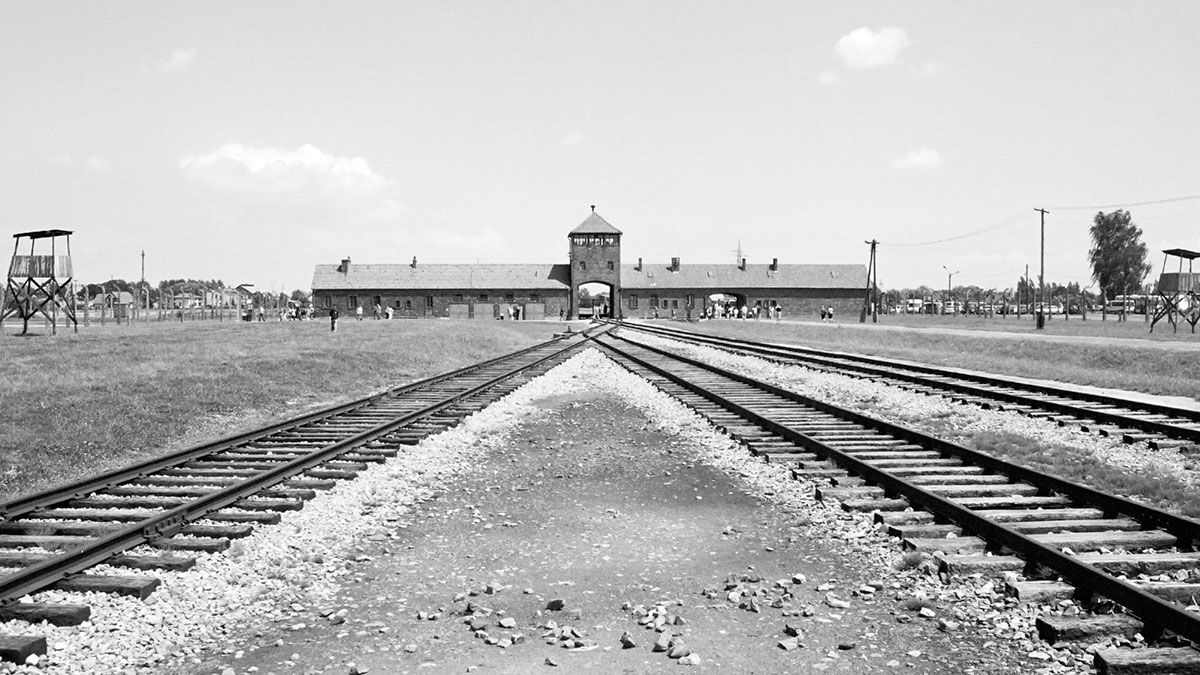Point/Counterpoint: Should a 91-year-old former Auschwitz telegraph operator be tried?
 Supplied – V Maninnen
Supplied – V ManinnenPoint
I assume the unnamed 91-year-old woman recently charged with complicity in the murders of at least 260,000 Jews during World War II is pondering the saying “nothing remains hidden under the sun.”
Having worked as a telegraph operator in Auschwitz, the woman is set to be tried in a court for minors since she was under 21 at the time of her alleged crimes. The bone of contention seems to be the decision of whether to proceed with the trial next year, taking both her and her health into consideration. I’m absolutely in support of a trial.
The necessity for this trial cannot be overstated, especially in these times in which we are still witnessing acts of genocides in certain areas of the world. Proceeding with the trial is less about punishment and more about the subconscious message the trial will generate in the minds of individuals, namely that of extreme intolerance against complicity and indirect participation in acts of discrimination, hatred, etc. Regardless of whether or not she actually played any “real” part in carrying out genocide, it is pertinent that the woman go to trial — she has to be held accountable for her past deeds no matter how old they are. When people are forced to confront their actions/crimes and the surviving victims, a more honest remission is achieved. The fear and unwillingness to confront past deeds, which is then hastily covered up with talks of “moving forward,” does nothing but suppress emotions and hinder real resolution.
Some people might be of the opinion that the crime is long past and she is already too old to be prosecuted, but I staunchly disagree. Old age or even state of health should not be adequate reasons to forgo a court trial, as such decisions strengthen the notion that people wouldn’t have to be accountable for their actions — all it takes to successfully evade justice is to wait until old age. The whole purpose of the legal system — rehabilitation — is also defeated if individuals are excused trial due to old age or health. In this particular case, I strongly support carrying out the trial due in part to the fact that I believe that the accused in question has not really been given the opportunity to be rehabilitated or changed.
Furthermore, for a crime on such a large scale, it demands a trial of all “participants” not for vengeance but ultimately to honour the memory of the dead and to bring closure to the numerous surviving families. Based on information gleaned from her duty roster, it was discovered that she was in service from April until July 1944, corresponding to these dates is a period when huge numbers of Hungarian Jews were murdered in the gas chambers of Auschwitz-Birkenau. It would be of immense honour to the memory of these dead victims if she was at least tried in the court of law to determine her innocence or guilt. — Floyd Robert
Counterpoint
There are those who will stand on principle and say that anyone who had anything to do with the atrocities committed in WWII ought to be incarcerated, while others will claim that due to her advanced age, a trial and successful conviction will accomplish little by way of reparation. While these and other context-specific arguments all have their merits, the reason I am opposed to the procession of trial has more to do with our conceptions of the justice system and what it is supposed to accomplish.
In practical terms, the justice system is arguably supposed to perform three functions: deter people from committing crimes, rehabilitate those who have committed crimes, and protect society from people who commit crimes. The intuitive way to think about justice is punitive: if someone breaks a law (moral or otherwise) they should be punished for it. Since people do not generally like to be punished, this is supposed to dissuade them from breaking the law, and in the event that they do, the punishment amounts to preventing them from participating in society. The beauty of this account is that it is simple and descriptively accurate from a psychological standpoint (negative reinforcement works), and it seems to be grounded in equality because punishments are deemed to ‘fit’ the crime. However, there is a potential problem here, namely the notion that punishment has the ability to exact justice. Punishment is not really justice — punishment is an act of violence against someone who has committed an act of violence, and in order to believe that punishment can deliver equality we have to believe that two wrongs can make a right.
So if we take punishment and retribution out of the picture and simply ask ourselves what further harm this woman can do, assuming we can even justify the relaying telegraph messages as accessory to murder, it seems rather pointless to proceed to trial. If she is found guilty, it would be ridiculous to imprison her on the basis of protection and the efficacy of imprisoning her for the purpose of rehabilitation is seriously limited due to her age. In this case, the only thing a guilty verdict will accomplish is a putative delivery of justice by way of punishment. In my opinion, the cornerstone of justice is not punishment, and if we choose to prosecute this 91-year-old woman on the basis of punishment instead of the basis of rehabilitation and protection, then we are not only wasting resources, but effectively committing a crime ourselves.
This is not an easy thing to come to grips with: if it is in fact the case that a guilty verdict at trial cannot deliver justice, how can we ensure justice is served? In short, we can’t. In situations like this, the end result is in practical terms always too little too late, and if we were honest with ourselves we would admit that there is no real consolation to be had in the illusion of symbolic justice. A trial would in this case be ultimately pointless because the fact of the matter is that there is no justice to be had here. — Felix Murrle
[poll id=”8″]



